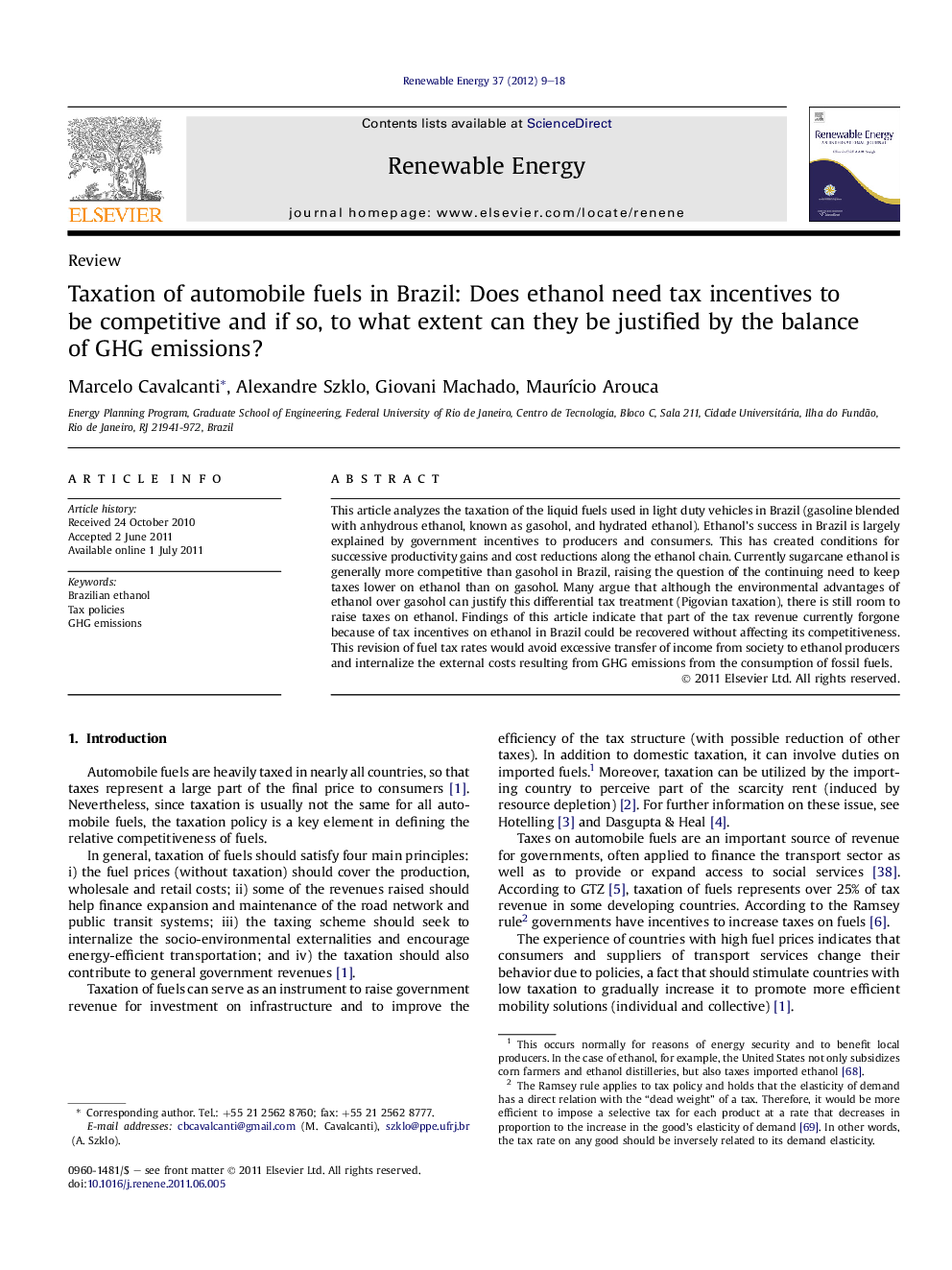| Article ID | Journal | Published Year | Pages | File Type |
|---|---|---|---|---|
| 301369 | Renewable Energy | 2012 | 10 Pages |
This article analyzes the taxation of the liquid fuels used in light duty vehicles in Brazil (gasoline blended with anhydrous ethanol, known as gasohol, and hydrated ethanol). Ethanol’s success in Brazil is largely explained by government incentives to producers and consumers. This has created conditions for successive productivity gains and cost reductions along the ethanol chain. Currently sugarcane ethanol is generally more competitive than gasohol in Brazil, raising the question of the continuing need to keep taxes lower on ethanol than on gasohol. Many argue that although the environmental advantages of ethanol over gasohol can justify this differential tax treatment (Pigovian taxation), there is still room to raise taxes on ethanol. Findings of this article indicate that part of the tax revenue currently forgone because of tax incentives on ethanol in Brazil could be recovered without affecting its competitiveness. This revision of fuel tax rates would avoid excessive transfer of income from society to ethanol producers and internalize the external costs resulting from GHG emissions from the consumption of fossil fuels.
► We analyze the taxation of the liquid fuels used in light duty vehicles in Brazil. ► We examine if ethanol is more competitive than gasohol in Brazil. ► The advantages of ethanol over gasohol can justify a gap on tax treatment. ► Part of the tax could be recovered without affecting ethanol’s competitiveness. ► We match the external costs resulting from GHG emissions in ethanol and gasohol.
